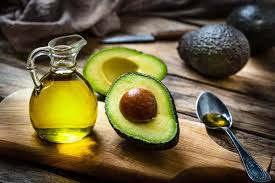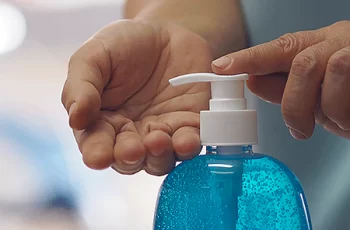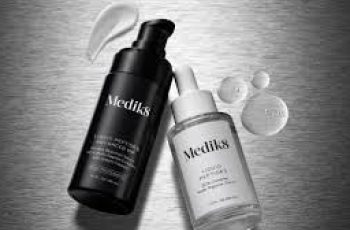
Avocado Oil in Skin Care: The Ultimate Guide
Avocado oil (Persea gratissima) is extracted from the creamy pulp of avocados using organic pressing methods. It’s prized for its unique fatty acid profile and rich nutrient content.
This natural oil has become a popular ingredient in many skin care products because of its hydrating, antioxidant, and skin-lightening properties. It nourishes and protects skin in multiple ways.
Let’s dive deep into what makes avocado oil so beneficial, how it works on different skin types, and how it compares to other oils like coconut oil.
What Kind of Oil Is Avocado Oil?
Avocado oil is mostly made up of unsaturated fatty acids, which means it falls into the category of “dry oils.” This classification refers to oils that absorb quickly and don’t leave a greasy residue.
Unlike essential oils, avocado oil is thicker and is classified as a carrier oil. Carrier oils are used to dilute essential oils and deliver nutrients to the skin safely.
Its rich composition makes avocado oil excellent for moisturizing, supporting ingredient absorption, and even treating skin concerns like dark spots and redness.
Active Compounds in Avocado Oil
The most abundant compound in avocado oil is oleic acid, a monounsaturated fatty acid that makes up roughly 39% of the oil. Oleic acid can create tiny channels in the skin, boosting absorption of other ingredients.
Avocado oil contains saturated palmitic acid, which adds to its thick, moisturizing texture. While palmitic acid is great for hydration, it may clog pores in sensitive or acne-prone skin types.
Another key fatty acid is linoleic acid, which helps calm inflammation and soothe redness. Linoleic acid is especially beneficial for hydrating the skin barrier.
Additionally, avocado oil contains phenolic compounds like ferulic acid. These antioxidants help neutralize free radicals, reducing skin damage and signs of aging.
Benefits of Avocado Oil in Skin Care
Thanks to its unique fatty acid profile, avocado oil offers several skin benefits:
Enhanced Absorption: Oleic acid in avocado oil helps other skincare actives penetrate deeply into the skin, increasing their effectiveness.
Moisturizing Power: The combination of fatty acids hydrates and locks moisture into the skin, making it ideal for dry or flaky skin.
Occlusive Qualities: Avocado oil forms a protective barrier on the skin, preventing water loss—a process known as skin slugging.
Non-Comedogenic: It doesn’t contain lauric acid, a fatty acid known to clog pores, so avocado oil is less likely to cause breakouts.
Antioxidant Protection: Rich in antioxidants, it helps fight free radicals, which can cause premature aging and skin damage.
Are There Any Side Effects?
Avocado oil is generally very safe for skin care, but there are a few considerations. If you have extremely dry skin, high concentrations of oleic acid may cause irritation or redness.
People with acne-prone skin might experience clogged pores due to palmitic acid, although avocado oil is not highly comedogenic overall.
To avoid irritation, it’s best to patch test avocado oil before full use and observe how your skin reacts.
Is Avocado Oil Safe?
Yes! The Environmental Working Group (EWG) rates avocado oil as a “1,” meaning it poses very low risk for toxicity or allergic reactions.
Most avocado oils in skin care are cold-pressed or organically processed to preserve their beneficial nutrients, as chemical extraction methods can strip these away.
Choosing organic, unrefined avocado oil ensures you get the full spectrum of fatty acids and antioxidants for maximum skin benefits.
Avocado Oil for Specific Skin Concerns
Acne
Avocado oil is generally safe for acne-prone skin since it’s not highly comedogenic. However, more research is needed to fully understand its impact on acne-causing bacteria.
Because oily skin types usually avoid heavy oils, avocado oil is often combined with natural antimicrobials like tea tree oil, bergamot, or jojoba in acne products.
Dry Skin
Avocado oil is excellent for dry skin due to its occlusive properties that lock in moisture and reduce water loss.
That said, very dry or compromised skin might find the high oleic acid content irritating. Oils richer in linoleic acid are usually gentler for extreme dryness.
Top oils for dry skin typically include borage seed, evening primrose, grape seed, rosehip, and sunflower oils.
Dark Spots and Hyperpigmentation
Avocado oil contains natural tyrosinase inhibitors, which can reduce melanin production and help fade dark spots.
For best results, it should be combined with other lightening agents like licorice extract or hexylresorcinol in targeted treatments.
Wrinkles and Aging
Thanks to its antioxidant content, avocado oil is useful in anti-aging products to combat free radicals that cause wrinkles.
It works well alongside more potent anti-aging actives like retinoids but is usually not strong enough alone for significant wrinkle reduction.
Avocado Oil vs. Coconut Oil: What’s the Difference?
Both oils come from fruits but differ greatly in composition and use.
Fatty Acid Profile: Coconut oil is mostly saturated fats, while avocado oil is mainly unsaturated fats. This affects how they interact with skin.
Melanin Effects: Avocado oil inhibits tyrosinase, slowing melanin production and potentially lightening skin. Coconut oil, on the other hand, activates tyrosinase, which can enhance tanning.
Comedogenicity: Coconut oil contains lauric acid, which can clog pores and worsen acne. Avocado oil lacks lauric acid, making it safer for sensitive skin.
Hair Care: Coconut oil is heavier and protective for hair but can weigh curls down. Avocado oil is lighter, nourishing without damage to curls.
Overall, avocado oil is better suited for hydrating and soothing skin, while coconut oil is favored for antimicrobial and protective uses.
Products That Commonly Contain Avocado Oil
Avocado oil’s benefits make it a sought-after ingredient in a wide variety of skin care items, such as:
Dark spot treatments
Eye serums and creams
Moisturizing lotions and balms
Sunscreens and after-sun care
Its versatility means you can find avocado oil in many product types, both natural and clinical formulations.
How to Choose the Right Avocado Oil Product
When selecting an avocado oil product, consider your skin type and concerns.
For dry skin, pick products where avocado oil is combined with high linoleic acid oils to balance hydration and barrier repair.
For oily or acne-prone skin, look for lightweight formulations and products blended with antimicrobial agents.
Always opt for cold-pressed, organic avocado oil to ensure maximum nutrient retention and avoid irritation from harsh chemicals.
Final Thoughts
Avocado oil is a powerful, natural ingredient that delivers hydration, antioxidant protection, and gentle skin lightening.
Its fatty acid profile helps other skincare actives absorb better and enhances the skin’s moisture barrier.
While it suits many skin types, those with extremely dry or acne-prone skin should use it cautiously or mix with other oils.
If you’re curious whether avocado oil fits your skincare needs, consider doing a patch test or taking a skin type quiz to guide your choices.
With its broad range of uses from dark spot treatments to anti-aging, avocado oil is a versatile, nourishing addition to your daily skin routine.


